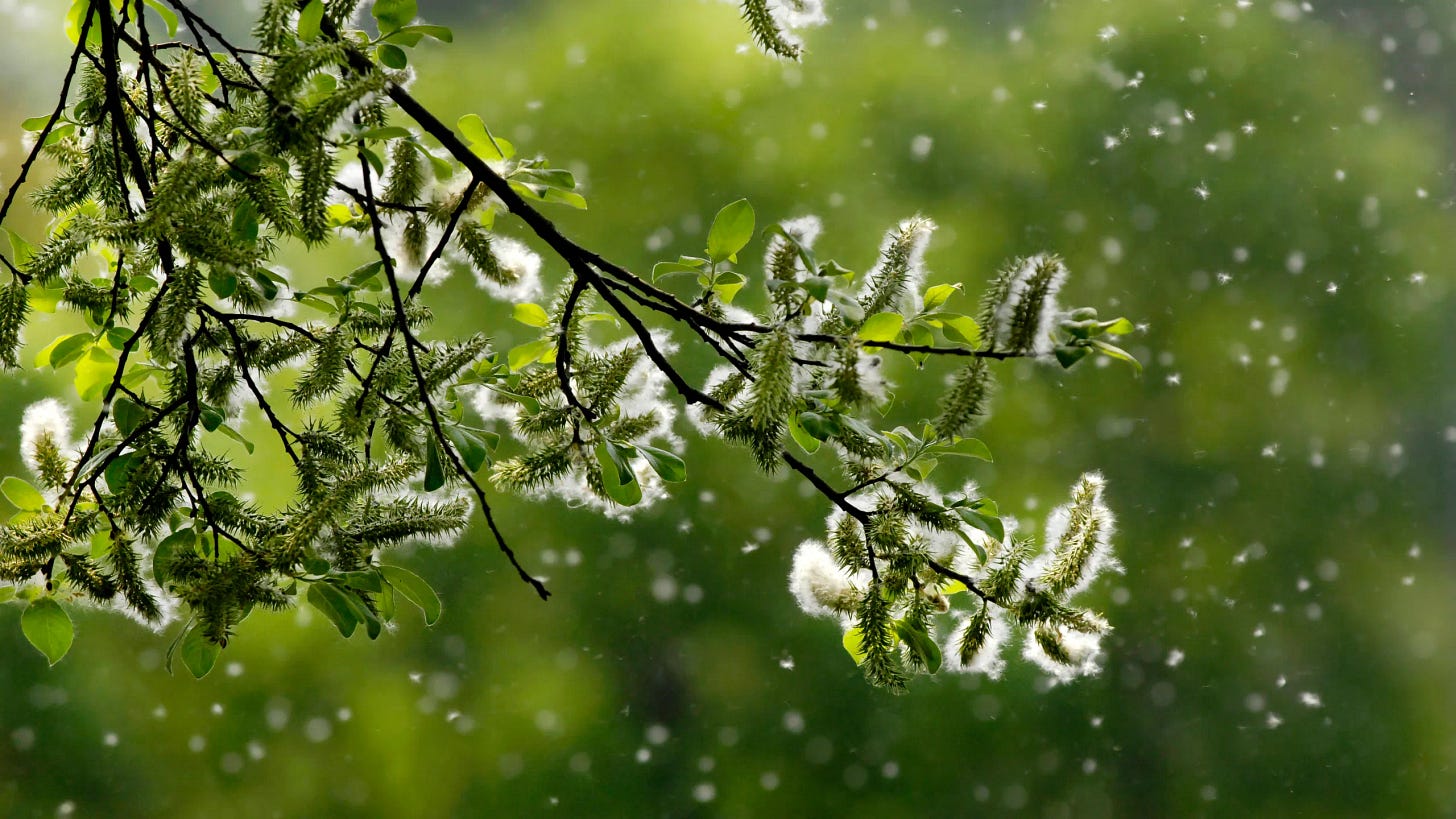Pollen. Whether it's in our churches with our Easter lilies in bloom, in our neighborhoods, in the park, or otherwise, Springtime’s pollen is in the air. There’s this pollen; and then there’s what I’m calling “Paschal pollen.” The question for our examination: How does Paschaltide pollen impede the Paschal joy that our Eastertime prefaces at Mass have us begging from the Eternal Father?
The Mass of Wednesday of the Third Week of Easter hit us with this Opening Antiphon: “Let my mouth be filled with your praise, that I may sing aloud; my lips shall shout for joy, when I sing to you, alleluia,” (Ps. 71 (70): 8,23). On my short walk to offer Mass, my mouth was filled with more pollen than praise, and I thought, “Indeed: It’s hard to sing God’s praises with a tablespoon of pollen in my mouth; hard to see His goodness around me with pollen-crusted eyes.” And so proceeds the metaphor: with the Paschaltide pollens of doubt, sin, and fear in my heart, it can become really hard to live in Paschal joy and to sing the praise of God.
So, what is the Paschal pollen? What Paschaltide pollen-obstacles keep you from being “overcome with Paschal joy”?
The same Wednesday readings gave us the first reading from Acts 8: 1-8. Lots of pollen-obstacles in the air for the early Church, namely: a severe persecution breaks out; a murdered deacon is buried; there is loud lament; Christians are dragged from their homes and imprisoned; the faithful of the Church are scattered. These circumstances pose great challenges to the members of “The Way”. Can you imagine? Praising God, seeing His presence, living in Paschal joy, trusting in the Holy Spirit amidst such trials? I can't imagine it was easy.
I know it isn’t for us with what we face day to day. Like pollen in the throat or in the eyes, it is hard to sing God’s praises with sin and doubt in our mouths. It’s hard to see His Spirit at work — guiding, arranging, healing — with the pollen of doubt in our eyes. And so with other obstacles in our midst.
We need medicine — not Allegra or Flonase — but Paschal medicine because regardless of the season — whether the desert exodus of Lent or the glory of Easter — as long as we are on this side of eternity, we are exposed to these. But, if we’d just listen to the doctor, and take the medicine, we’d be better off. Supremely. For eternity.
The early Church had this medicine from the lips and hands and Sacred Side of the Savior and from the ministry of the Apostles (cf. Acts 2:42): the bread of life and living bread; the flesh and blood of Jesus Christ given up for us and given to us as food; the food that gives eternal life (cf. Jn 6: 27, 40, 47, 54). Paschal Medicine to remedy, to cleanse, to fend off the what might lead them to doubt, despair, or self-reliance.
Availing themselves of this Paschal Medicine for these pollens and obstacles, what then did the Church do, despite being scattered? Finding themselves in new places where they preach the word; unclean spirits are driven out; the paralyzed and crippled are cured; “And there was great joy in that city.”
So for us: there can be great joy for us. It will always begin (and end) with the sanctifying Soul of Christ, the saving Body of Christ, the cleansing waters and inebriating Blood from the Sacred Wounds of Christ, the safe shelter of the Side of Christ. These our medicine — soothing salves, elixirs of eternal life. Given that we may praise with full voice, that we may see rightly. These graces given in the Holy Eucharist, the Body and Blood of the Lord: our Paschal medicine for Paschal pollen, precisely what the Divine Immunologist ordered: “Take, eat, drink; do this.”
Christ our Passover has been sacrificed. Come, let us keep the feast (cf. 1 Cor 6: 5-8). To Him be glory and power through every age and forever.
Father John Bilenki is a priest of the Archdiocese of Baltimore currently finishing advanced studies in Rome and will return this summer. Ecclesia Christi Baltimore hopes Father John will be a regular contributor.





